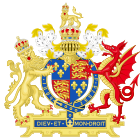Treason Act 1551 facts for kids

|
|
| Long title | An Acte for the punyshment of diverse Treasons. |
|---|---|
| Citation | 5 & 6 Edw. 6. c. 11 |
|
Status: Repealed
|
|
The Treason Act 1551 (5 & 6 Edw. 6. c. 11) was an important law made by the Parliament of England. It dealt with very serious crimes against the king or queen, known as high treason. This law was passed in 1551 during the reign of King Edward VI. It changed some of the rules about what counted as treason and how these crimes were handled.
Contents
What Was Treason in 1551?
The Treason Act 1551 made some new actions count as treason. It also brought back some old rules that had been removed.
Taking the King's Forts
One new rule made it treason to take control of one of the King's forts or castles. If someone seized a fort and did not give it back within six days of being told to, it was considered treason. This rule had been used before in a law from 1534, then removed, and now it was brought back. It was later removed again, but then returned without the six-day deadline.
Speaking Against the King
It also became treason to say that the king was a "heretic" or a "usurper."
- A heretic was someone who believed things that went against the official church teachings.
- A usurper was someone who took power illegally, without the right to do so.
If someone wrote these things about the king, it was treason. If they said it out loud, it became treason only after the third time they did it.
How Treason Cases Were Handled
The Act also changed some of the rules for how people accused of treason were treated. These rules are called "procedural rules."
Time Limits for Prosecution
Before this Act, if someone was accused of treason just by "open preaching or words" (meaning what they said or preached), they had to be charged within 30 days. The Treason Act 1551 changed this. It said that such a person could be charged up to three months after the crime happened. This gave the authorities more time to build a case.
Rules for Widows
The law also had a rule about the wives of men found guilty of treason. If a man was convicted of treason, his widow (his wife after he died) was not allowed to claim her "dower." Dower was a special right that allowed a widow to receive a part of her husband's property for her own use after he passed away. This rule about dower was not changed until 1925.
Why the Act Was Changed Later
Many of the new treason rules created by this Act did not last long. They were removed by another law, the Treason Act 1553, just two years later. Over time, different parts of the Treason Act 1551 were officially removed or "repealed" by other laws. This often happens with old laws as society and legal systems change.
See also
- High treason in the United Kingdom
- Treason Act
 | Percy Lavon Julian |
 | Katherine Johnson |
 | George Washington Carver |
 | Annie Easley |

